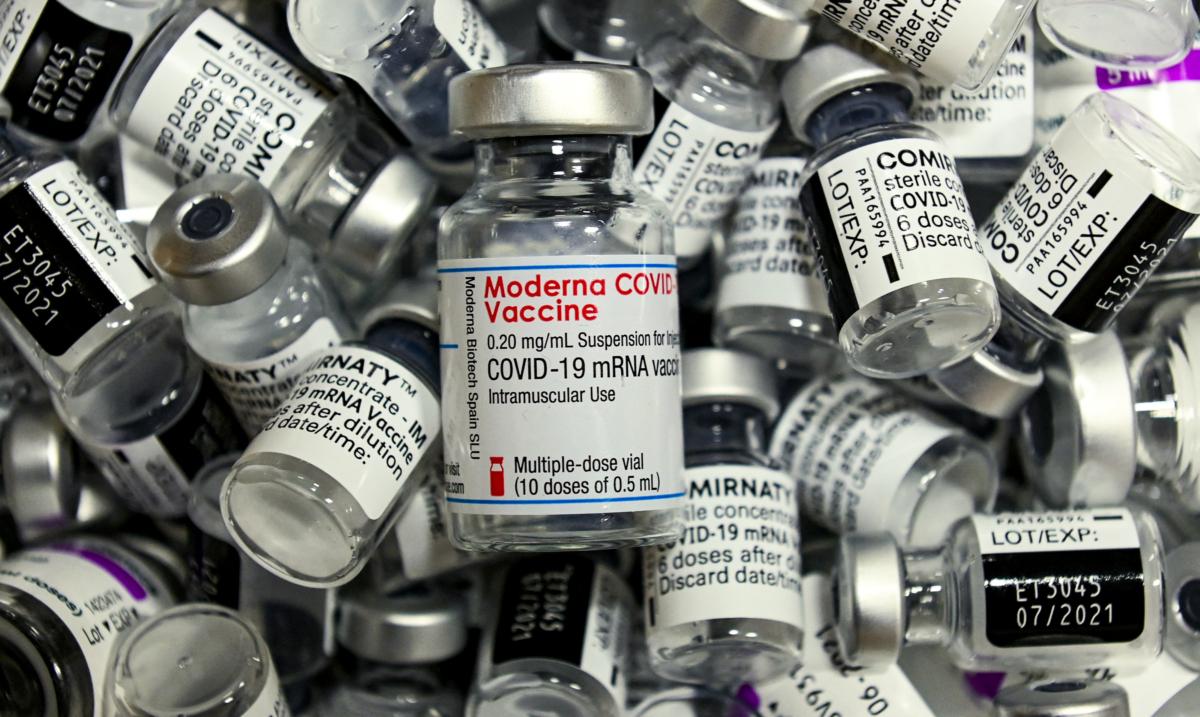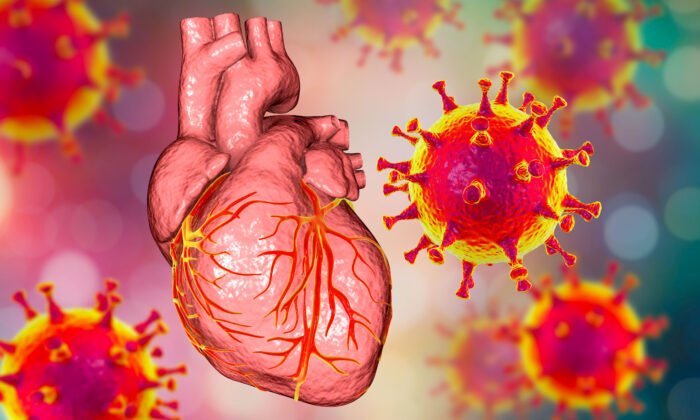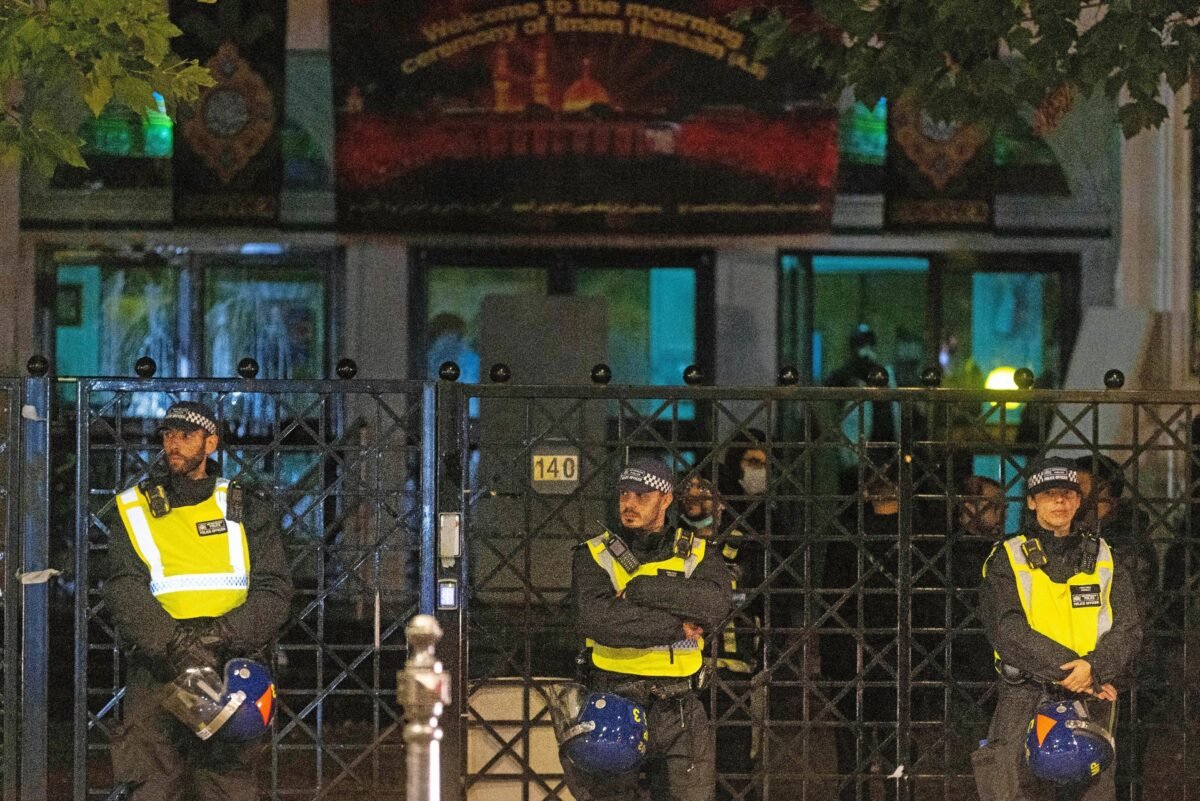Study Shows More Than 50% of Myocarditis Patients Still Experience Symptoms 6 Months After COVID-19 Vaccination
Females were found to be ‘significantly more likely’ to have ongoing symptoms.
A majority of individuals impacted by heart conditions such as myocarditis after being vaccinated against COVID-19 were still experiencing symptoms six months after the diseases were diagnosed, as per a recent study in Australia.
Surveys from affected individuals were collected at one, three, and six months following the onset of symptoms. The researchers found that 54.8 percent of survey respondents had ongoing symptoms of the two illnesses after six months.
“At all follow-up time points, females were significantly more likely to have ongoing symptoms,” researchers wrote.
51.9 percent of male respondents reported symptom resolution, in contrast to only 22.6 percent of female respondents.
“Females were also more likely to continue medication and have ongoing exercise restrictions,” it said. “However, males were significantly more likely to have higher initial peak troponin results and abnormal initial cardiac imaging investigations.”
Troponin is a protein in the blood that usually remains inside the cells of the heart muscle. However, damage to the cells can cause troponin to leak into the bloodstream. High levels of troponin can thus indicate heart damage.
“Male patients were more likely to report earlier and more complete symptom recovery, despite significantly higher average initial peak troponin,” the study observed.
The survey responses were received between Feb. 22, 2021, and Sept. 30, 2022, with the study conducted in Victoria, Australia.
Other Supporting Studies
Researchers pointed to evidence from other studies suggesting that people with myocarditis associated with COVID-19 vaccines tend to recover quickly. One study showed that 81 percent of such patients were deemed to have recovered within 90 days after being diagnosed.
However, “even though initial symptoms may resolve quickly, underlying changes on imaging investigations such as [edema], non-ischaemic late gadolinium enhancement (LGE), and hypokinesia have been noted in some COVID-19 vaccine myocarditis cases,” the authors noted.
“This may be a marker of significant myocardial injury, necrosis, scarring, or fibrosis and may result in long term morbidity.”
Edema refers to the build-up of fluids in the body, resulting in swollen tissues. LGE is a technique used in cardiac MRI for the assessment of myocardial scars. Hypokinesia refers to a type of movement disorder.
Researchers called for more analysis and long-term surveillance of myocarditis cases to understand the persistence of abnormalities and symptoms, including any potential development of heart failure or other cardiac comorbidities.
Myocarditis Risk From Vaccination
Several studies have shown myocarditis among individuals who were vaccinated against COVID-19. A July 25 study from Denmark looked at more than 2.2 million adults aged 50 years and above who received three COVID-19 vaccine doses.
After a fourth dose of the mRNA vaccine, researchers observed nine cases of myocarditis and 22 cases of pericarditis within 28 days of vaccination.
“In addition, comparing our findings with those of Oster et al., we can reiterate that the risk of myocarditis after receiving mRNA-based COVID-19 vaccines was highest after the second vaccination dose in adolescent males.”
All five took a Pfizer or Moderna vaccine within seven days of their deaths. None of them were infected with COVID-19.
For three out of the five individuals, COVID-19 vaccination was cited as the “likely cause” of myocarditis, with the condition blamed to be the “cause of sudden death.” The remaining two cases were attributed as deaths possibly caused by vaccination.

Dr. Andrew Bostom, a heart expert based in Rhode Island, told The Epoch Times that these cases were “the tip of the iceberg.”
“If there’s a seemingly healthy person that dies suddenly in their sleep, essentially, these are typically the cases that are autopsied, and clearly the most common finding is some form of atherosclerotic coronary heart disease. But they basically ruled that out in these cases. And then they came up with the most plausible proximate cause being vaccination,” he said.
“And so it suggests that the phenomenon could actually be broader than it’s been suspected to be.”
“The mRNA COVID-19 vaccines present a risk of subclinical and clinical myocarditis and other cardiovascular conditions among otherwise healthy individuals,” the guidance said.
The most common causes of death were heart-related issues.
Zachary Stieber contributed to this report.






